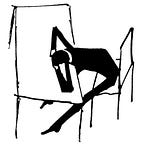Do Not Remain Nameless To Yourself
Feynman’s advice to one of his doctoral students
It is a very important thing to really know oneself. Richard Feynman knew it. I was recently reading a letter that he once sent to one of his former Ph.D. students where they were discussing the latter’s work.
It seemed that the former student was on low spirits, largely because of his current work position, and Feynman was trying to drill down into the problem, find the roots, and point out some arrows of direction for him.
Humbleness
The first notable point in Feynman’s letter is a humbling view of the world. He stresses that the graveness of a problem, its importance is not necessarily a mandate for tackling it. He rather urges his former student not to do away with simpler problems and not to underestimate the power of little successes.
I would advise you to take even simpler, or as you say, humbler, problems until you find some you can really solve easily, no matter how trivial. You will get the pleasure of success, and of helping your fellow man. You must not take away from yourself these pleasures because you have some erroneous idea of what is worthwhile.
And this is indeed the case. It is not winning a lottery, the all too rare occurrences, that make for a pleasant life but rather the little everyday occurrences that are there, consistently present, consistently rewarding.
I think its quite important that we look for these little pleasures in our everyday life, at work, and at home.
Ben Franklin put it thus:
If you teach a poor young man to shave himself, and keep his razor in order, you may contribute more to the happiness of his life than in giving him a thousand guineas.
A really straightforward pragmatic fact. I also strongly recommend this Ted talk to you, which also expresses a similar idea.
Knowing oneself
But what was really interesting to me was the closing remark of the letter where Feynman writes:
Do not remain nameless to yourself — it is too sad a way to be. Know your place in the world and evaluate yourself fairly, not in terms of your naïve ideals of your own youth, nor in terms of what you erroneously imagine your teacher’s ideals are.
Know thyself. That was the prescription that one received from the oracle at Delphi, 2600 years ago, back in classical Greece. Indeed, almost every wise philosopher and teacher of morals really seems to agree on this point. And boy is it hard for two philosophers to ever agree on anything!
But why is knowing oneself important after all? Why is this worth spending the time and effort? Because you see, there is a fundamental difference between being used to oneself -which be default everyone is- and truly knowing oneself. Truly knowing oneself means descending many steps deeper into the abyss. It probably takes long study, suffering, and deprivation and very few truly achieve this. But as Feynman correctly points out, it is only thus that you can really know your own place in the world, that you ‘do not remain nameless to yourself’.
It is only by truly knowing ourselves that we do what we really find worthwhile doing, what gives us pleasure and joy, what is in the end great work.
Or as Nietzsche puts it:
Alas, much boredom has to be overcome, much sweat expended, before we discover our own colours, our own brush, our own canvas! And even then we are far from being a master of our own art of living…
I mean, virtually by definition, if one doesn’t know oneself, then one won’t really know their strengths, passions, fears, and ‘demons’ and thus it seems to me that one never ends up really doing anything but rather fluctuates between the petty and fleeting desires of the moment, seeking what is not really made or meant for us.
Not to mention that life’s disappointments increase a hundred folds.
But this seems to me to be fundamentally opposed by the current trend of our time which recommends work and toil as much as possible (hopefully 100h/week) multitasking, in short being ‘useful’ all the time.
One may truly do this and even achieve a high amount of success in life but one might lose in the process what is truly worth: oneself.
